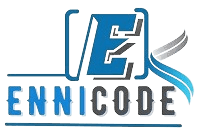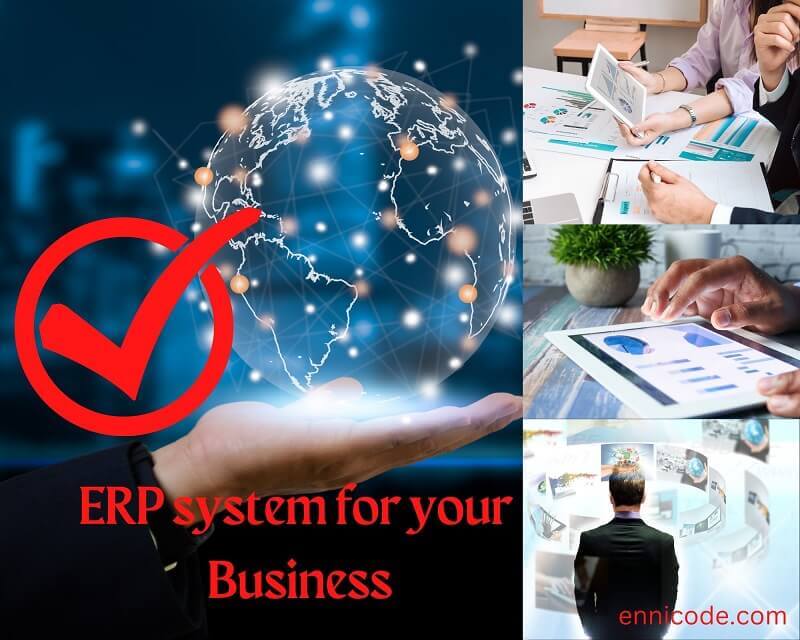ERP system creates a digital platform for any business. why an ERP system is important to your company?
For the success of your business, you need to take the right decisions at right time. Right ERP system means you need to select the ERP system which is most suitable for your business and budget allocation.
Significant factors when selecting an ERP system?
1. Type of the business
Need to identify the type of your business, It may digital business, manufacturing firm, import or export company, food, and beverage, preparation, or service provides, likewise, you need to get a clear idea about the business type
2. Scale and scope of the business
The size of the business may be small size, medium size, or large it can be considered with the number of employees. The scope is an area of your business that is spread.It means it is a local business or a global business.
3. The industry of your business
need to identify your business industry correctly
4. ERP Requirements of the business
what are the challenges of your business? and why you required an ERP system
5. Available features of the ERP system
need to identify what features can match your business requirements
6. Competitors using ERP systems
need to search out your business competitors using ERP systems. it will help you get a competitive advantage for your business
7. Cost-budget allocation and resource
Budget is the most important factor when selecting an ERP system. Companies should aware of the budget that can be invested in your business. Because for implementation of ERP need a huge cost to the company and also it takes time for the overall implementation process as well as employees need some time to adapt new system by giving training. So this kind of long-term investment is required to identify the correct budget allocation. It should be an affordable cost to your company.
8. Benefits of ERP systems
Need to analyze challenges faced when not using an ERP system, and also need to identify the advantages of having an ERP system for your business.
9. Other options available for ERP system
Before selecting an ERP system, you need to analyze the availability of any other options for an ERP system. If there is any other software solution that could fulfill your requirements. It is better to move that. Because an ERP system is a long-term investment that small businesses could not affordable as well as it is a big process to implement an ERP system.
10. Implementation process
Need to identify the implementation process clearly. How many phases are you going to implement? Time duration
11. Training requirements and facilities
For the implementation ERP system, you and your employees need to get training from an ERP vendor, So you need to forecast time duration of the training and also resources for training. Who will provide training, and also how much cost do you need to allocate for training?
12. Time duration for adapting your business or upgrading your business
You need to calculate and aware of upgrading or adapting time duration because it’s may negatively affect your business, so as a prevention method you can get ready to face that time.
13. Accessibility and Data security
As a company or organization data is a more valuable thing. It should be secure, data accessibility is most important. So you need to analyze how to protect data, and how to limit accessibility. Which data can access employee limitations.
14. Mobility
Need to think about your business needs cloud-based ERP systems or on-premises ERP systems. Most the business like to cloud-based Systems,
15. Maintenance cost
Maintenance costs should be affordable
16. Flexibility
customization and configuration
17. Integration with existing business systems
It is nice to integrate ERP with existing systems
18. Return on investment
ROI means the initial investment when will cover and how much profit can be made after the implementing ERP system
19. Industry experience of the vendor
Need to analyze the industry experience of the ERP vendors.Because if an ERP vendor has more years of experience and a large number of implementing ERP systems in the field means it has better knowledge and experience regarding the industry and we can expect better service than others,
20. language compatibility
If your business is multinational or global business ERP system should support different languages. Need to clearly analyze what kind of languages require for your business and the selected ERP system should support those languages.
Steps of selecting the right ERP system for your business

1. Identify your software requirements for your business
First, you need to identify why you need to ERP system for your business. It means the need to identify the requirements of the business. All the requirements can be listed with 2 categories of each and every requirement under the topic of nice have and need have. Then you can give priority to the need to have requirements. In this stage, you need to clarify why you need an ERP system or the drawbacks of the existing ERP system or existing software solutions.
2. Need to evaluate available options, other than ERP solution
In this step, you need to be aware of the stakeholders of the organization and other parties who involve in your organization’s decision-making process. Then you can list their ideas related to ERP systems and other options available.
This is the most important part because you need to confirm whether your organization exactly needs an ERP system or not. Is it affordable to business or not, most important to take a decision regarding an ERP system with the company decision-making team. Otherwise, maybe cost and time wasted.
And, it is needed to analyze how to affect shortlisted requirements and ERP systems your current software system, and employees. Such as reporting and data accessibility.
3. Create a short list of ERP software vendors
In this step, you need a better understanding of your business scale and scope of the business. You can search for Top ERP suppliers who match your industry, requirements, and budget. For getting a competitive advantage, you can find out your competitors using ERP solutions. Maybe it matches your business or you can get a competitive advantage from the ERP system.
make the sure list should be short it is better to list not more than 5 vendors, It is easy to evaluate clearly. Otherwise, it’s time-consuming and cost-wasting. After creating a list of ERP software vendors you can evaluate software vendors one by one.
4. Evaluate live software demos
It is suitable for creating a script or demo according to your requirements and workflows. Then you can disused with your team regarding strengths and weaknesses of the demo. It is useful to get ideas from the team and also select the right vendor.
5. Need to identify the budget allocation and price of each and every shortlisted ERP vendor.
For the price comparison need to request quotations from software vendors, Then you can compare prices, features, terms, and conditions, training facilities,3rd part involved, customization, maintenance, hardware requirements, deployment options, support service, and more.
6. Request references and reviews from vendors
Need to ask a few reference businesses same industry, same business size, and same requirements business has engaged with ERP solutions before. Do not hesitate to ask what the challenges have faced that business also, It may advantage your business ERP implementation. After reading and finding references and reviews you have better knowledge of ERP vendors that match your requirements,
7. Decide an ERP software for your business
Now you have great knowledge regarding ERP vendors and also your company’s requirements for implementing ERP solutions. so you can make the right decision in selecting an ERP system. Please note that before the confirmation of the ERP vendor you need to be aware of the agreement terms and conditions and other detail
ls. After getting a clear idea of the agreement’s terms and conditions, you can decide to choose an ERP system. Please note that you should get written documents of terms and conditions for agreements, It may useful for future legal matters as well as upgrading and maintenance of the ERP system.
It may be a critical decision that has to select the most suitable ERP system for a business. Actually, any kind of business needs to identify its requirements for choosing an ERP system.
When you select an ERP system It is a huge cost to your company also it needs to change the management processes and so on. Time-consuming matter. so in the first step, you need to take the right decisions with the collaboration of the decision-making team of the organization.
If you can’t make the right decision the solution you may lose huge money for your company while wasting time for many peoples in the company. And also if do not fulfill the company requirement for implemented ERP, you need to change the ERP from another buyer or upgrade to another ERP system.
It is wasting money while needing more time. However, it negatively affects your current business. To avoid that kind of problem you need to select the right vendor and the right product ERP solution.
Here ERP selection checklist blog for your reference


